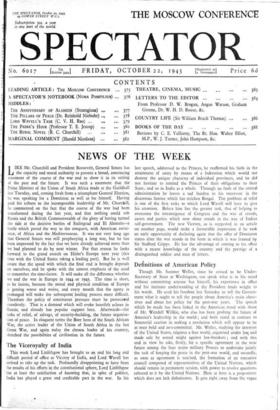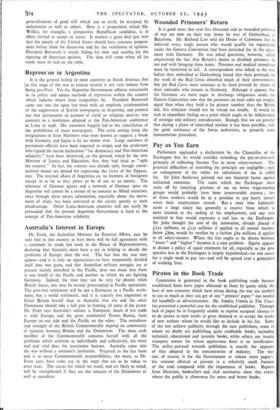Definitions of American Policy
Though Mr. Sumner Welles, since he ceased to be Under- Secretary of State at Washington, can speak what is in his mind without committing anyone but himself, his experience in office and his intimate understanding of the President lends weight to his words. He used his freedom last Saturday to tell the Govern- ment what it ought to tell the people about America's main objec- tives and about her policy for the post-war years. The speech which he made has been linked in the American mind with those of Mr. Wendell Willkie, who also has been probing the future of America's leadership in the world ; and both stand in contrast to Senatorial caution in seeking a resolution which will appear to be at once bold and non-committal: Mr. Welles, studying the interests of the United States, requires a free world, organised under lay; and made safe by armed might against law-breakers ; and with this end in view he asks, firstly, for a specific agreement in the near future among the four major military Powers to undertake jointly the task of keeping the peace in the post-war world, and secondly, as soon as agreement is reached, the formation of an executive council composed of representatives of the United Nations, which should remain in permanent session, with power to resolve questions referred to it by the United Nations. Here at least is a proposition which does not lack definiteness. It gets right away from the vague generalisations of good will which can so easily be accepted by isolationists as well as others. Here is a proposition which Mr. Willkie, for example, a prospective Republican candidate, is in effect invited to accept or reject. It matters a- great deal just now that the people of the United States should have concrete proposi- tions before them for discussion and for the ventilation of opinion. President Roosevelt is wisely biding his time and waiting for the ripening of, American opinion. The time will come when all his cards must be laid on the table.



























 Previous page
Previous page